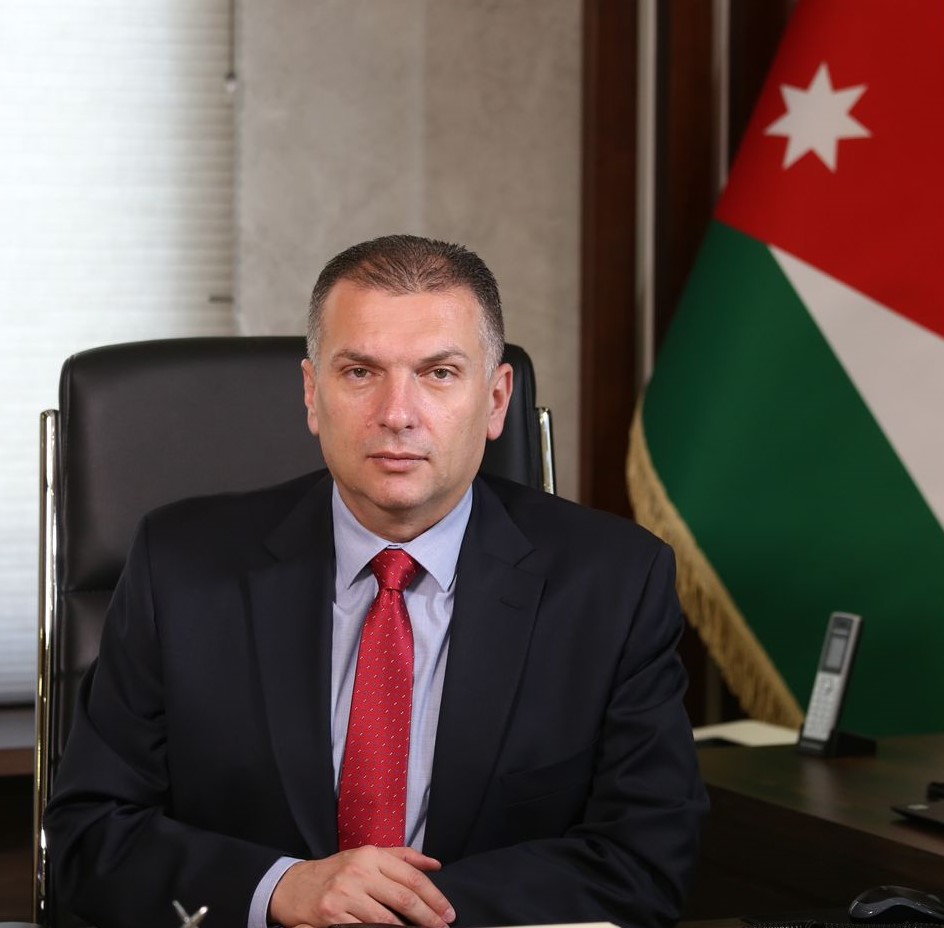
Al-Mahrouq: The membership aims to enhance Jordanian banking capabilities to keep pace with international developments.
The European Banking & Financial Services Training Network (EBTN) announced the acceptance of the Association of Banks in Jordan as a participating member in the network.
On Friday, June 21, 2024, during the annual meeting held by the European Banking & Financial Services Training Network (EBTN) in Serbia, the announcement was made. The meeting aimed to discuss the organization’s activities and the application for membership from the Association of Banks in Jordan as a participating member. The membership request was presented by Dr. Maher Al-Mahrouq, the General Manager of the association.
During his address at the general meeting, Al-Mahrouq emphasized the importance of collaboration with the network and its role in enhancing the future endeavors of the Association of Banks in Jordan. He highlighted the association’s inception, the services it provides, and its keen interest in obtaining membership in the European network due to the numerous benefits it offers, which contribute to the advancement of Jordanian banking operations.
Al-Mahrouq mentioned that the Association of Banks is the third Arab member to join the European network, alongside representatives from Egypt and Lebanon. This underscores the significance of the association’s entry into the European network community and its future collaboration at both regional and international levels.
Al-Mahrouq also highlighted the substantial support received from members of the European network for the association, noting that the membership request received unanimous approval without objection or abstention from any member. He mentioned that the membership application was further endorsed by three international institutions, commending their continuous support and collaboration with the Association of Banks. This underscores the association’s strong reputation and professionalism in international and regional circles, reflecting positively on the robust and secure reputation of Jordan’s banking sector, as recognized by these institutions.
Al-Mahrouq also pointed out that the European network includes numerous countries worldwide, with 34 European members and 8 non-European members. Participating countries include Belgium, Italy, Germany, Greece, Cyprus, Spain, France, the United Kingdom, Hong Kong, India, Turkey, Egypt, Lebanon, and Canada. He clarified that the European Banking & Financial Services Training Network is headquartered in Brussels, Belgium, within the European Union’s premises. It is a non-profit European organization focused on developing and enhancing excellence in banking and financial services education and training across Europe. Additionally, it facilitates collaboration among various stakeholders including banks, financial institutions, training providers, and educational institutions to enhance the quality and effectiveness of training and education in the banking and financial services sector. It serves as a platform for institutions and organizations to collaborate in various banking fields, develops standards for specialized training and education programs in banking and finance, and organizes a wide range of significant banking events and conferences while offering advanced training programs related to the banking sector on an international level.
Al-Mahrouq further explained that the decision to apply for membership in the European network followed a comprehensive study by the board of directors of the Association of Banks, driven by a firm belief in the importance of joining. The goal is to enhance Jordanian banking capabilities to keep pace with global developments and changes in various fields such as sustainable finance, green finance, digital transformation, and leveraging artificial intelligence tools.
Al-Mahrouq stated that joining the European network will offer numerous benefits and advantages, including building international partnerships and engaging with representatives from European and non-European financial institutions worldwide, facilitating the exchange of experiences and ideas; accessing one of the most important and largest sources of knowledge and innovation globally, enabling the identification and adoption of best practices in training and capacity building in banking; leveraging the expertise of financial and banking professionals within the European network, benefiting from training programs, activities, conferences, workshops, and other events; and utilizing specialized committees within the network, such as the Sustainable Finance Committee, Personal Finance Committee, and Knowledge Transfer Committee, to enhance knowledge and expertise in specific areas, with the ultimate goal of enhancing Jordanian banking capabilities and aligning with international advancements in various fields, including sustainable finance, green finance, digital transformation, and artificial intelligence applications.
On the topic of training and capacity building, Al-Mahrouq emphasized that the Jordanian banking sector is one of the most efficient economic sectors in the Jordanian economy due to its highly qualified human resources, with around 23,000 employees, approximately 35% of whom are women. This places a significant responsibility on the association to diligently maintain this advanced level of human resources in the sector by opening up training opportunities and positively engaging with the activities of the European network and benefiting from them.
Al-Mahrouq stated that the Association of Banks works alongside many local and international institutions to develop training and enhance the capacity building of banking human resources. This aligns with the association’s strategy to strengthen its regional and international presence and improve the efficiency of the training programs and services it offers, particularly in building competencies, skills, and job proficiencies for those working in the banking sector. Moreover, membership in the European network aligns with the Central Bank’s vision and the economic modernization vision for Jordan’s banking sector by opening up new horizons and possibilities. This ensures that the banking human resources support and work towards achieving this direction, especially in the areas of financial sustainability and green finance, which the European network promotes through a dedicated committee.
During the general meeting, Ms. Fatima Direks, President of the European network, highlighted the esteemed position of the Association of Banks in the Arab region, noting that the association has been established for 50 years. She also provided a brief overview of the services the association offers and emphasized the importance of its membership in the network, while highlighting potential avenues for future collaboration. Ms. Direks further mentioned the widespread welcome from European network members for the inclusion of the Association of Banks.
At the conclusion of the general meeting, Al-Mahrouq extended his sincere gratitude and appreciation to the European Banking & Financial Services Training Network, its president, and all its members for welcoming the Association of Banks in Jordan into their membership. He noted that the association will strive to contribute to the enhancement of the European network’s efforts and build on its initiatives in developing training and capacity building in the banking sector. This will align with the association’s mission to improve training capabilities and serve the Jordanian banking sector in a distinguished and future-oriented manner.





